A Worsening Crisis
A growing sense of desperation and fear is forcing families across the Hudson Valley to leave the state in hope of finding an organ transplant.
'Leaving to Live,' a four-part, six-month 'Turn to Tara' investigation, looks into the confusion and chaos surrounding the organ wait list in New York, and the reason why so many patients are simply packing up their bags and fleeing the state.
The deadly crisis was around long before the coronavirus, but it is now growing even more urgent. The pandemic has brought organ transplants in New York to a near standstill, and nearly 500 people to die every year across the state.
“It's not fair, it's crazy.” Patients needing transplants often forced to leave NY
An agonizing wait awaits many patients waiting for an organ
One Woman's Mission
An Ambassador for Change
Sadly, the 'Turn to Tara' team discovered that in New York, thousands of people are languishing on a wait list, and they might not ever come off of it.
Whether or not these people survive often depends on where they live and, believe it or not, how much money they have in the bank.
Emily Schwarz, her fiancé Michael and their son, Mossimo, are one of those families waiting for a lifesaving transplant. “I knew I had polycystic kidneys. I was born with it. So it was always just a matter of when my kidneys would start to fail,” says Emily.
That day came for the Tuckahoe mom two years ago at age 33. “My kidneys don't fit on a sonogram screen.”
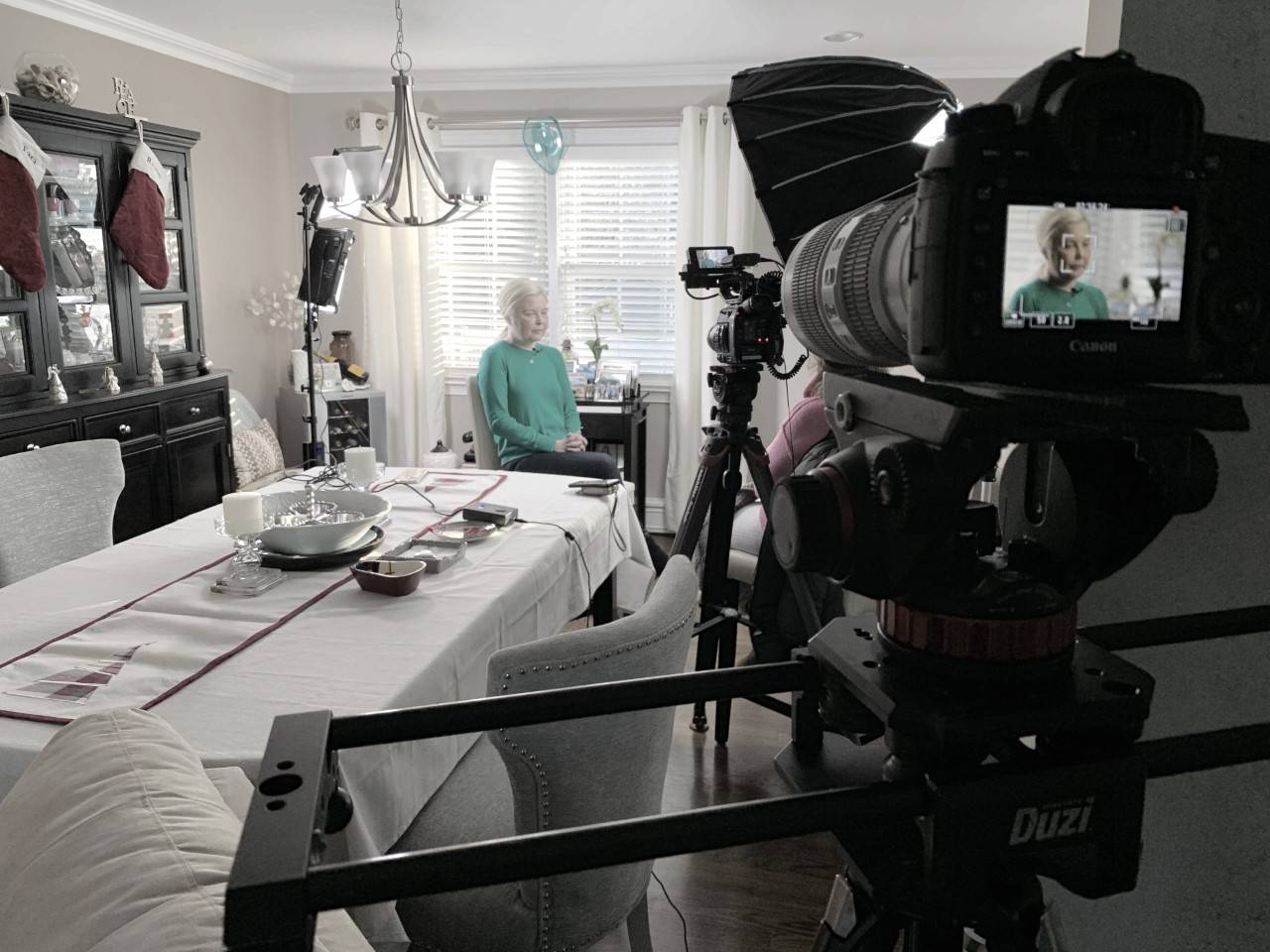
Tara McKeegan, of Pearl River, says she had a choice; either leave New York for a transplant or die. Although she received the lung transplant, she later passed away after battling coronavirus.
Being hooked up to a dialysis machine for three hours a day, three days a week, now keeps her alive.
Not only is Emily trapped in a body that doesn't work, but she is also stuck in a state that is increasingly dangerous to call home if you suffer organ failure.
Over the past several months, the ‘Turn to Tara’ team uncovered data which shows evidence of a broken donation system that will likely claim the lives of 500 New Yorkers this year alone.
Research indicates that the average wait for an organ in America is one to two years. But in New York, the wait is three to five years, the second longest wait in the country.
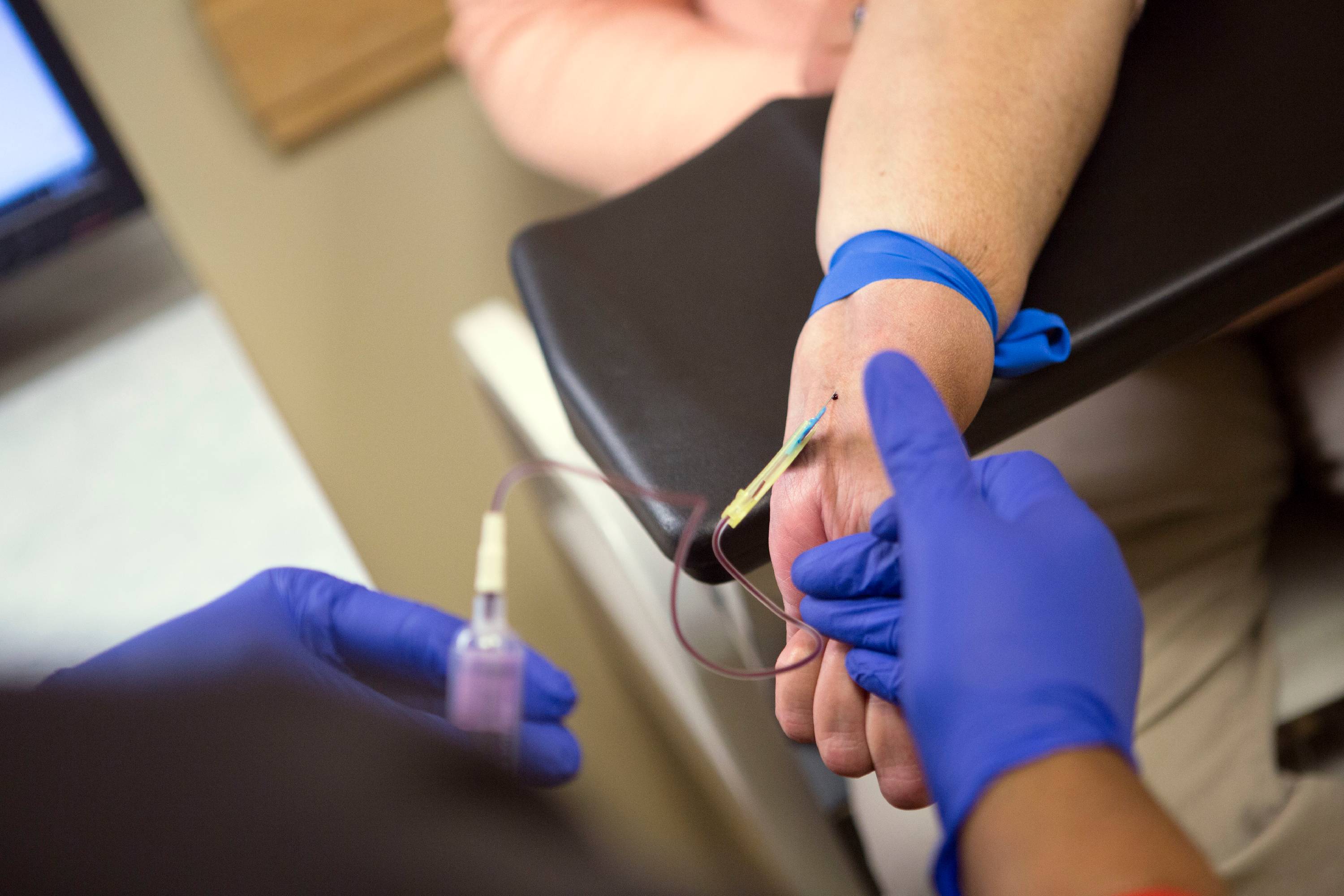
A patient has blood drawn at the Hospital of the University of Pennsylvania after a kidney transplant (AP Photo/Jessica Kourkounis)
“It's just insane. It's hard to put into words something that's so personal. And it's very hard to talk about. It's an interesting feeling to be dying and know that and not be able to do anything about it,” says Emily.
One of the sad ironies for Emily, and the other 10,000 New Yorkers just like her hoping for a life-saving organ, is that the only way to move up the list is to get sicker. However, not so sick that a patient won't survive the surgery.
Diagnosed at birth with cystic fibrosis, Tara McKeegan, of Pearl River, says a bout with pneumonia at age 35 thrust her down the path for a transplant.
It's an interesting feeling to be dying and know that and not be able to do anything about it.
But after languishing 11 months on New York's list, she made a very difficult and costly decision. She packed her bags five years ago and left for North Carolina. It was either leave New York, she says, or wind up dead. “My window was there, and I was potentially one infection away from going to the other side.”
Within two months, she had two new lungs. “It took me a month to get listed and 11 days later, I had my lungs.”
However, leaving the state is not an option for Emily. “I can't afford to go move to another state. I can barely afford to live here. It's like I can't get help in my hometown. It's not fair, it's crazy.”
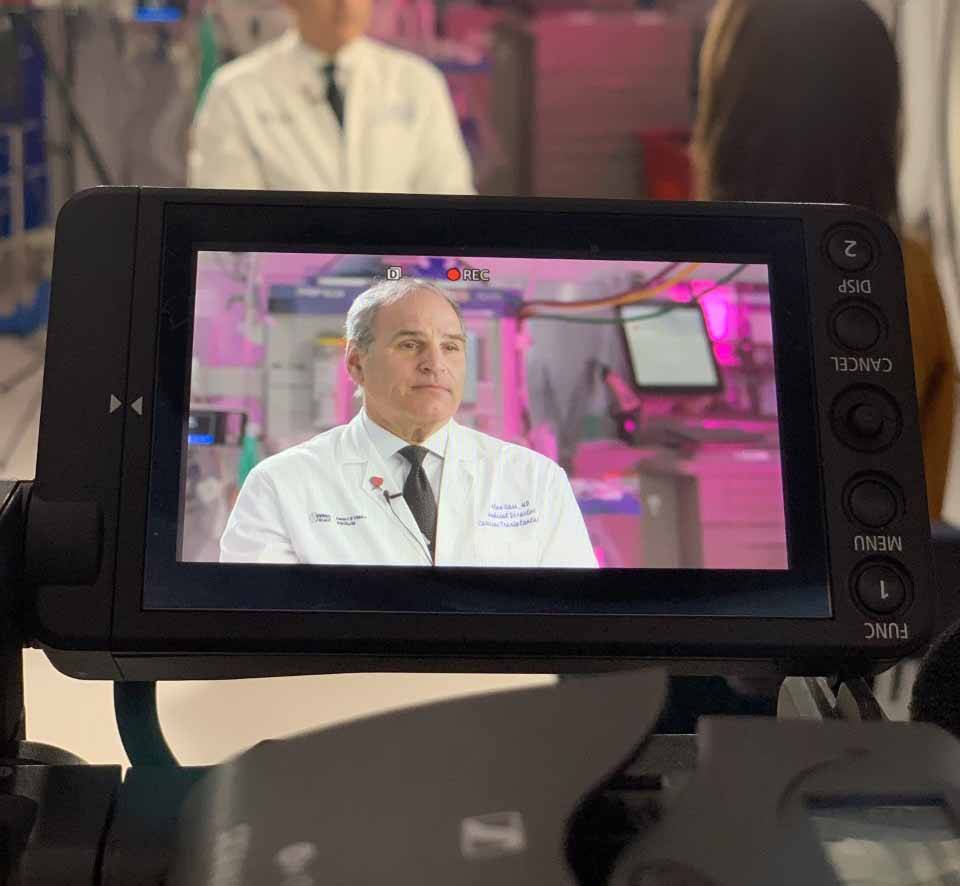
Dr. Alan Gass, Transplant Program Director at Westchester Medical Center, says New York is one of the worst place to be in terms of survival and waiting on organ donations.
Data shows 3,300 New Yorkers, about a third of the wait list, have been lingering three years or longer.
I can't afford to go move to another state. I can barely afford to live here. It's like I can't get help in my hometown. It's not fair, it's crazy.
And the state’s track record when it comes to organ donation is abysmal. Sadly, New York has the lowest percentage of registered organ donation residents in the entire country.
“As far as organ donation and survival to get your organ, New York is probably one of the worst places to be. Because the sheer numbers of people, there's going to be more people waiting on the wait list and because we're the lowest in organ donation in the country that gap becomes wider,” says Dr. Alan Gass, Transplant Program Director at Westchester Medical Center.
“If you had to pinpoint the reason why more people aren't donating. What is it? I will use the term ignorance.”
So why is it that in a state with the finest hospitals, doctors, and 19.5 million people, is New York dead last in organ donations?
Unlike New Jersey, New York schools aren't required to teach on the subject. And two years ago, New York became the last state in the nation to institute a donor registration website. The crisis has been made worse in recent months due to the coronavirus. More people stuck at home led to fewer traumatic accidents, and therefore less organ donations.
Helen Irving, CEO of Live on NY, the organ procurement organization for New York City and its suburbs says the organ donation system is broken.
Irving invited News 12’s Tara Rosenblum for a rare tour of their headquarters in midtown Manhattan only a few days before the pandemic struck. She was asked why should someone have to leave the state and why should income levels be the deciding factor on whether or not an organ failure becomes a death sentence?
“Part of that is on us. You know you can say we haven't done a good enough job of educating the general public. The organ registration is a different issue. We have the oldest registry in the country, but what's happened with the registry, we got stuck in bureaucracy.”
Irving is referring to years of criticism over poor organ donation rates in our area, but says they now have one of the fasted growing registries in the country. “The record we set last year is the most number of organ donors we have ever seen.”
But until help arrives, every 18 hours a patient will die in a deadly game of medical roulette.
But given the recent string of COVID-19 related setbacks, she says state and federal leaders need to take urgent action. “You know if you look at the number of patients that died last year, over 400, right? That's the equivalent of two aircraft crashing. Now if two aircraft crashed in Manhattan, I'm pretty sure somebody would do something about it."
But until help arrives, every 18 hours a patient will die in a deadly game of medical roulette.
Editor's Note: News 12 learned the sad news after the story was compiled that Tara McKeegan has passed away following a battle with coronavirus. “It's like being in a prison.”
Roughly 10,000 New York patients are waiting years for a transplant, and one of them will die every 18 hours.
Volunteer firefighter Frank Felice has spent two decades responding to calls for help, but now the 39-year-old Mamaroneck father of two needs someone to return the favor. Felice is dying of polycystic kidney disease and is in desperate need of a kidney transplant.
Staying alive requires four hour visits, three days a week to a dialysis center.
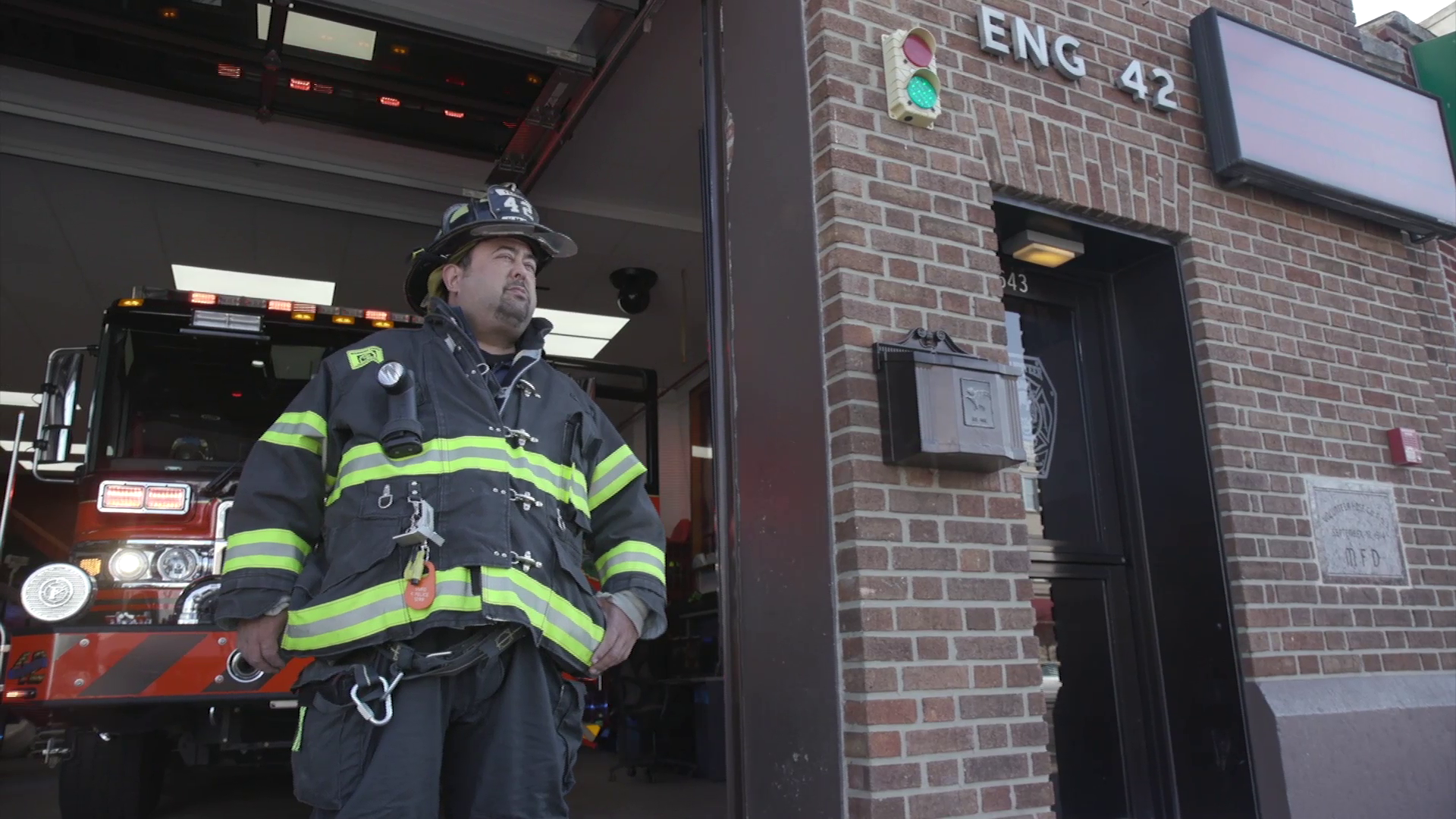
Volunteer firefighter Frank Felice has spent two decades responding to calls for help, but now the 39-year-old Mamaroneck father of two needs someone to return the favor.
“It's like being in a prison. There's no light at the end of the tunnel because you know every day, you know, you hit that one day off and then right back in that chair,” says Felice.
Felice is strapped to a life that depends on one of the longest transplant wait lists in America, in the state that ranks last when it comes to organ donations.
I don't think people really realize how easy it would be to donate.
Only 40% of New Yorkers are registered as donors, which is far less than the national average of 58%.
“There's no words. In New York, we should be showing the rest of the world how to do things. I don't think people really realize how easy it would be to donate.”
A national study recently found 3/4 of Americans are fearful and confused when it comes to organ donation, so the “Turn to Tara” team visited the Transplant Center at the Westchester Medical Center to separate fact from fiction.
What the team found was a fair amount of misunderstanding and misconceptions about transplants. One of the largest misconceptions is the belief that doctors won't try as hard to save your life if they know they can harvest your organs.
The transplant program's medical director, Dr. Alan Gass, says that fear is baseless. “Your first goal is to save a life and that trumps everything.”
Dr. Gass says that organ donation is performed at no cost and does not prevent traditional funeral arrangements like an open casket. Nor is it forbidden by any of the major religions.
The transplant surgery itself varies depending on the organ, but it almost always includes a minimal recovery time for living donors. Dr. Gass says the donor is often out of the hospital in a day or two.
Potential donors should also know that the nonprofit organization that oversees the nation's organ wait list, UNOS, very recently announced big changes to the way it decides where organs go.
In order to prioritize medical urgency over geography, organs are now being shared across a 500-mile radius after someone dies, as opposed to just one city or region.
But many advocates believe lawmakers need to go one step further and take bolder steps to increase the pool of donors. This follows the lead of other countries that have an opt-out policy, marking every citizen as a donor unless they indicate otherwise.
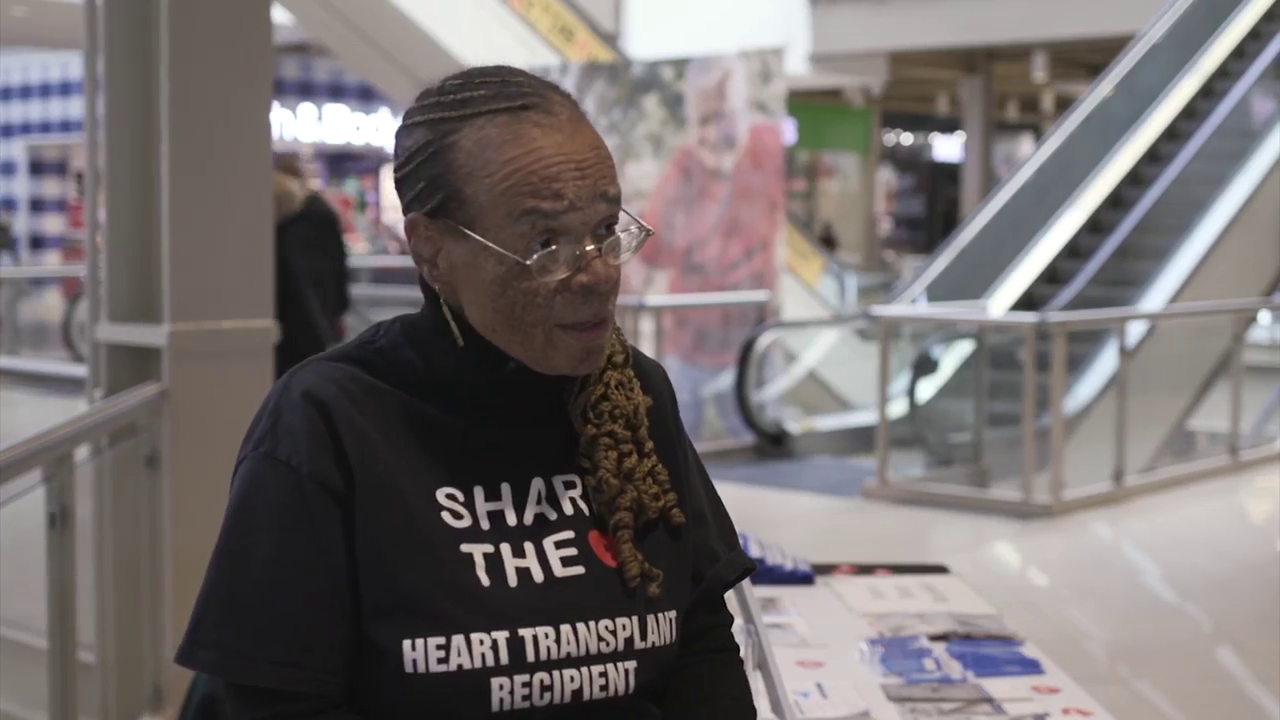
Roxanne Watson, a heart transplant recipient from Nanuet has become an advocate for organ donations.
From the brink of death to helping others liveA heart transplant recipient from Nanuet has become an advocate for organ donations.
Roxanne Watson says she suffered a silent heart attack in 2006. Her doctor told her that she was going to be put on the heart transplant list - and it shouldn't take long to find a donor.
Fast forward four years - that's when her new heart finally arrived at the Montefiore Medical Center in the Bronx. Watson says at the time, she was 100 pounds, could barely walk or talk and was close to dying.
It's horrible. New Yorkers don't want to be last at anything.
Now if you look for Watson, you may find her at a mall, school, hospital - or even on national television - being an outspoken advocate on organ donation.
She says she became an advocate almost overnight after learning that New York has the worst donor registration rate in the Western Hemisphere.
"It's horrible. New Yorkers don't want to be last at anything," she says. "I also learned that 60% of the people who are waiting are Black and Spanish."
She also learned that only 10% to 15% of organ donors are Black.
After that realization, Watson says she made a promise.
"I said 'Lord, if the Lord lets me live...I would get up out of that hospital and sign people up."'
She fulfilled that pledge starting the minute she left the hospital.
Watson says nine says after leaving the hospital she signed up her first 20 people, and that once she started, she couldn't stop. Hundreds of sign-ups turned into thousands, along with countless speaking engagements, advocacy events, celebrity encounters - and even an episode on Oprah's "All Stars."
As the cameras rolled, Watson learned about the identity of her own donor - Michael Bovill - who was part of the U.S. Coast Guard.
Her life mission now is to create awareness. She faces an uphill battle.
News 12 pulled data that shows there are more than 10,000 New Yorkers on the transplant wait list, but every year more than 500 of them die because organs don't arrive on time.
Watson says she is not discouraged - and recently notes that she marked an incredible milestone. She single-handedly recruited 12,000 organ donors - the most of anyone, anywhere in the United States.
She's got her heart set on getting many thousands more.
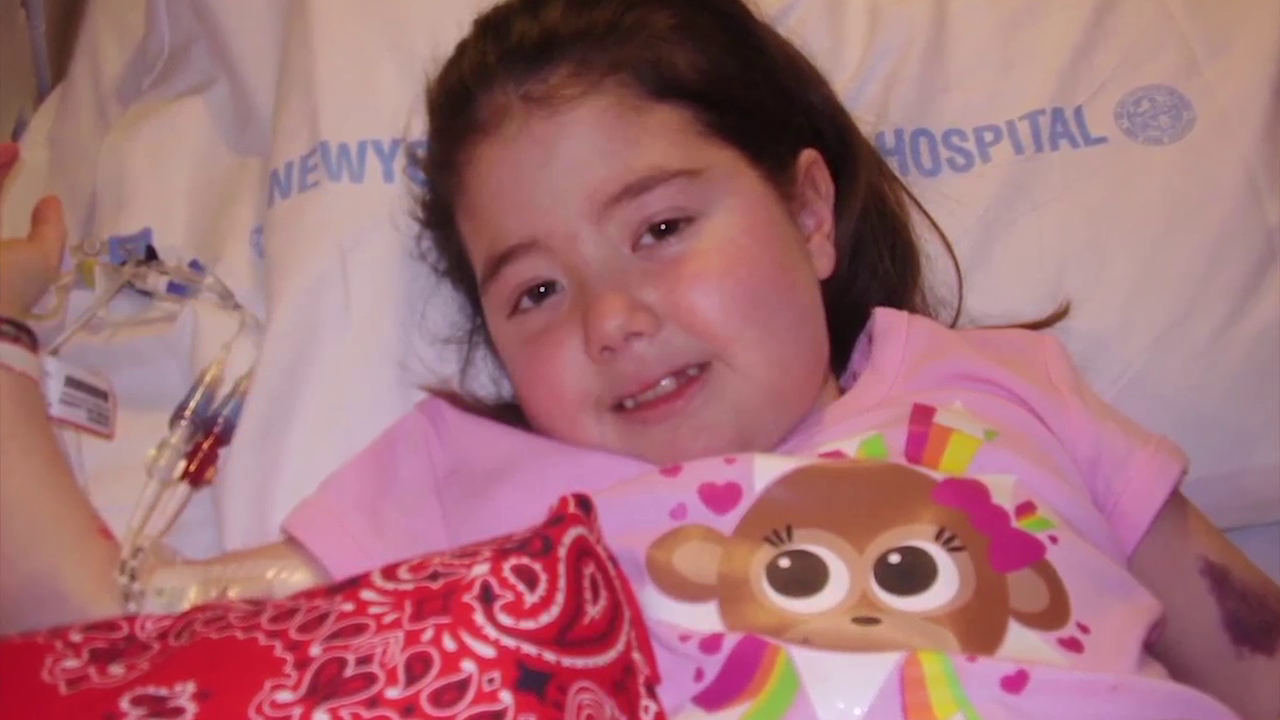
Lauren Shields received lifesaving heart surgery at the age of 9. With it came a new purpose: repaying her good fortune by taking on the role of lobbyist.
Leading the Way for Change
Advocacy work from an organ transplant survivor from Rockland County led to the creation of a new law in New York.
Lauren Shields received lifesaving heart surgery at the age of 9. With it came a new purpose: repaying her good fortune by taking on the role of lobbyist.
Nearly a decade ago, Shields pushed for the passage of a bill creating a mandatory question about organ donorship on all driver's license applications in New York - and Lauren's Law passed nine years ago this week.
The public health crisis still remains, as New York is last when it comes to donor registrations in America.
It means all hands on deck. It means passing important, progressive legislation.
This is why Sen. David Carlucci recently launched a new push for more funding to create awareness of the state's organ shortage that leaves a person to die every 18 hours.
"It means all hands on deck. It means passing important, progressive legislation," says Carlucci.
EDITOR'S NOTE: Shortly after this story was edited, News 12 learned that Shields was back in the hospital suffering from kidney failure.
Project Credits:
Pauline Chiou: Assistant News Director, News 12 Westchester
Lee Danuff: Producer, News 12 Digital
Paul Farnsworth: Producer, News 12 Digital
Alan Flamenhaft: Photographer/Editor
Frank Pokorney: Executive Producer, News 12 Digital
Tara Rosenblum: Investigative Reporter, News 12 Westchester
Jean Salzarulo: Special Projects Research/Producer
Chris Vaccaro: Vice President, News 12 Digital



















